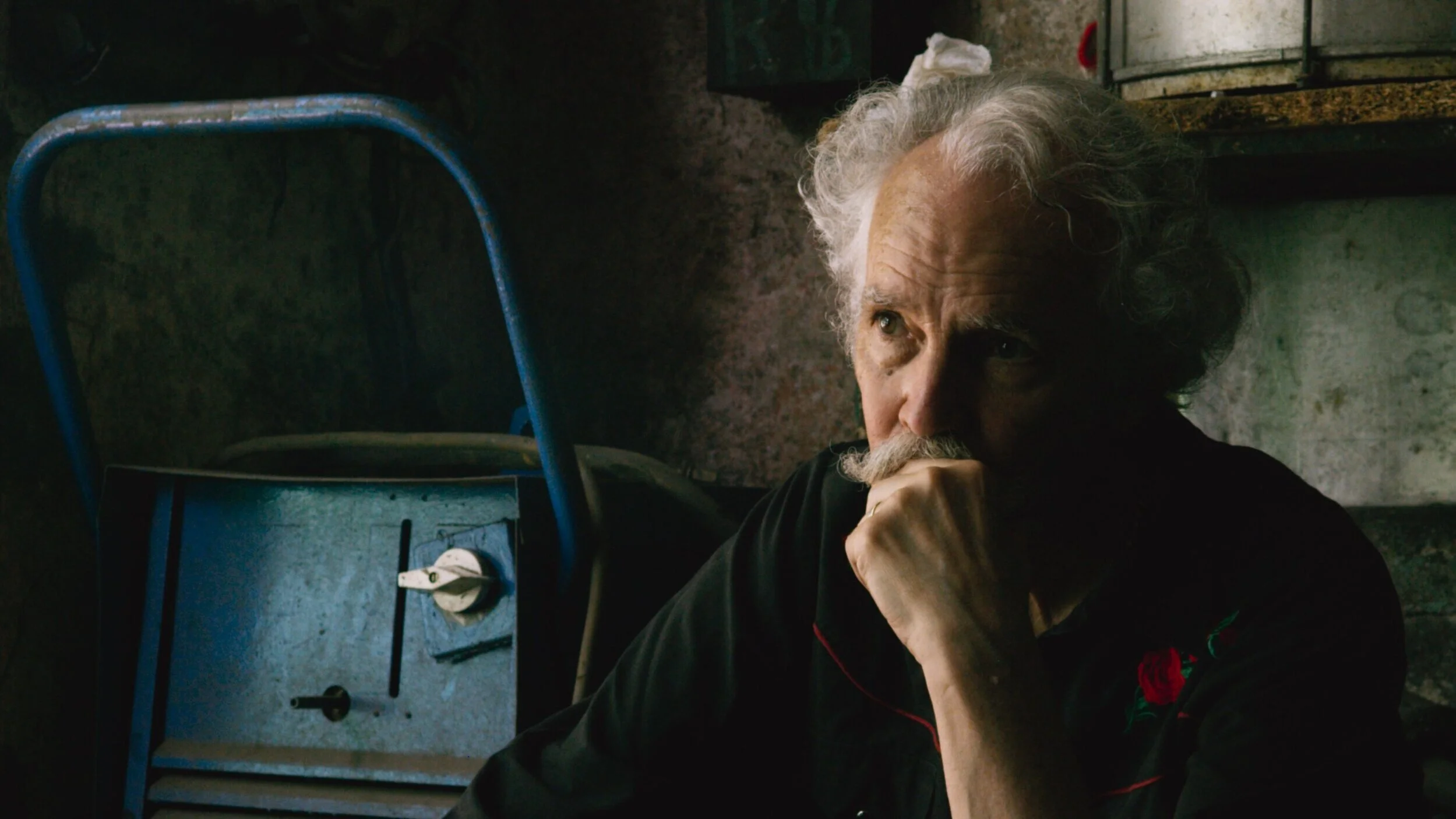Henry Glassie: Field Work
Pat Collins' documentary about the American folklorist Henry Glassie proves to be an object lesson in how not to put a film together.
As a critic, I have always had a high regard for films that pay due attention to the need to shape material in order to build up a satisfactory structure. The absence of that is, I believe, a weakness, but in the case of Henry Glassie: Field Work it is much more than that. Three or four segments of this documentary by the Irish director Pat Collins could be very effective if extracted and shown as short art studies in their own right. But when seen in context as part of this feature their value is totally undermined by the way in which the piece has been put together.
When preparing to watch this film I had no prior knowledge of the man who, in view of its title, seemed set to be central to it. I therefore looked up Henry Glassie on the internet before viewing it and found that he was an American professor born in 1941 who has written twenty books and has studied art and culture by spending considerable time in five continents. Aptly enough, the film opens with Glassie speaking in voice over to express a viewpoint crucial to his thinking, that is to say how each of us is essentially both an individual and part of a collective as we interrelate with the particular society to which we belong. But what is so surprising is that we then hear nothing more from him for the next 45 minutes or so.
What does happen is that we are quickly taken to Bahia spending some fifteen minutes with Rosalvo Santana whose art is ceramics before moving on to two other Brazilian artists, Nilo dos Santos and Samuel Rodrigues. What we see here is finely photographed with a good use of close-ups to illustrate the techniques of the artists, but nothing at all is said to explain their work and aims. That leaves us waiting in vain to hear something that would explain the function of these sequences within the film. Only after that do we move on to two artists, Evidal and Izaura Rosas, who actually talk about their work as they set out to replace two missing figures of evangelists for a local church. This is much more involving because of what they tell us, but we are still waiting impatiently to discover how Henry Glassie fits into all this.
The film's second half at last pivots on Glassie as we move on to view other artists that he has come across both in his own country and in Turkey. Nevertheless, even now the sequence of what is shown appears arbitrary and it is all too typical of the film that it leaves until the closing section material about Glassie's time in Ireland several decades ago (here he pays tribute to Peter Flanagan and Hugh Nolan both of whom he greatly admired and he picks out Ireland as the one country that expresses itself through song and through story).
We do eventually get to hear Glassie describing his work as a kind of anthropology related to uncovering individual artistic expression with its roots in folk culture. We learn too of how he would often take a whole decade living in a fresh location to get to understand the people and what they were expressing in their art before writing about it. This is so unusual that the film could well have benefited by asking more questions about this approach and also about his life (his wife appears briefly, I believe, but is not even identified). Some of the art seen in this film is striking as it ranges from pottery to oriental carpets. But the art that is crucially missing is that which creates a documentary which throughout has a clear purpose and which explains itself. Bits and pieces here do have value in their own right, but they come to us in a context that for me made watching this film a totally frustrating experience.
MANSEL STIMPSON
Featuring Henry Glassie, Rosalvo Santana, Nilo dos Santos, Samuel Rodrigues, Evidal Rosas, Izaura Rosas, Ahmet Sahin, Mehmet Gürsoy, Yusuf Sezer, Kate Johnston, Daniel Johnston, Mark Hewitt, Pravina Shukla.
Dir Pat Collins, Pro Tina O'Reilly, Ph Colm Hogan, Ed Keith Walsh, Music Linda Buckley. Thank
South Wind Blows/Harvest Films-New Wave Films.
105 mins. Ireland. 2019. Rel: 16 April 2021. Available on BFI Player and on virtual cinema release. No Cert.


